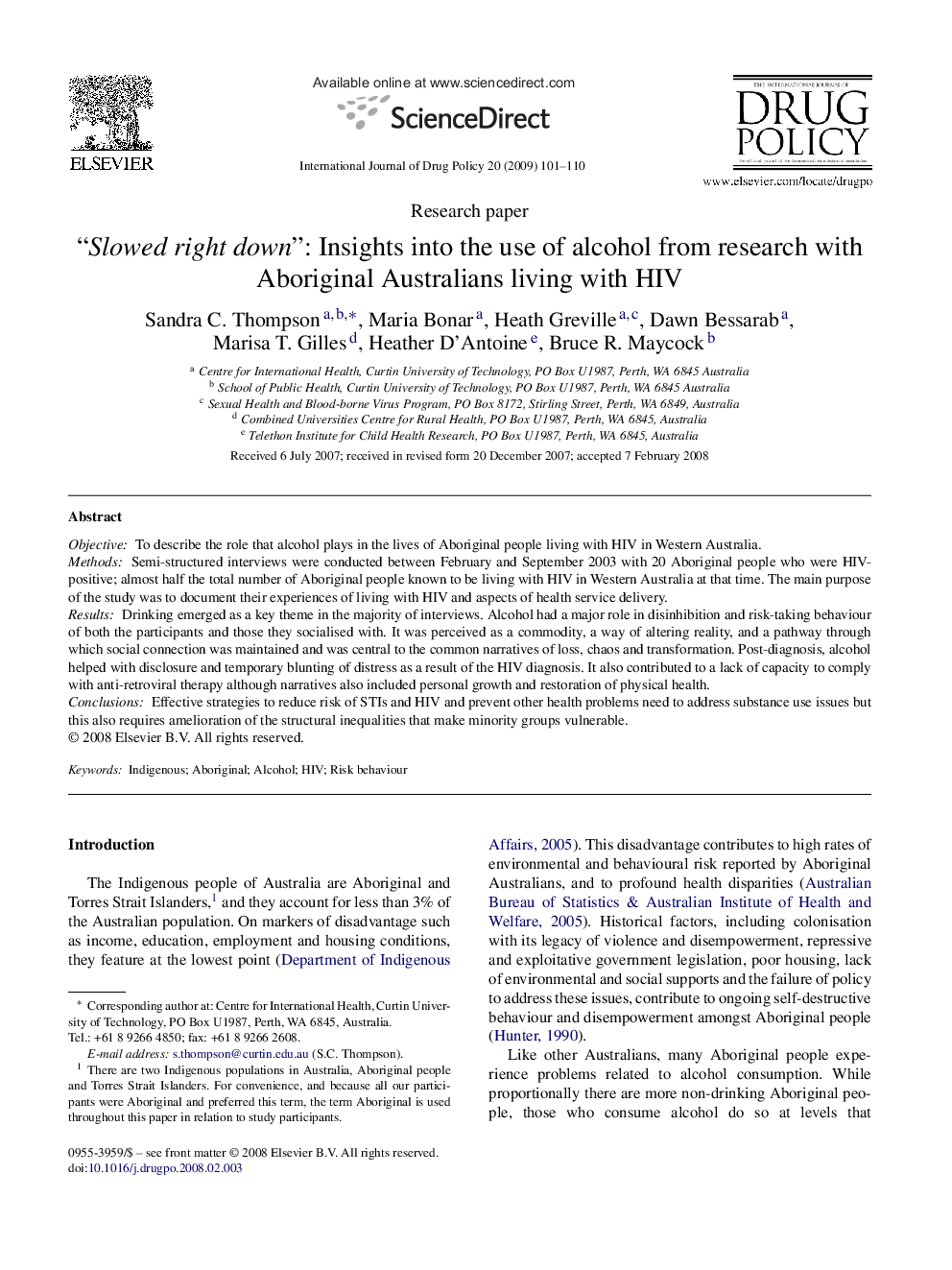| Article ID | Journal | Published Year | Pages | File Type |
|---|---|---|---|---|
| 1075477 | International Journal of Drug Policy | 2009 | 10 Pages |
ObjectiveTo describe the role that alcohol plays in the lives of Aboriginal people living with HIV in Western Australia.MethodsSemi-structured interviews were conducted between February and September 2003 with 20 Aboriginal people who were HIV-positive; almost half the total number of Aboriginal people known to be living with HIV in Western Australia at that time. The main purpose of the study was to document their experiences of living with HIV and aspects of health service delivery.ResultsDrinking emerged as a key theme in the majority of interviews. Alcohol had a major role in disinhibition and risk-taking behaviour of both the participants and those they socialised with. It was perceived as a commodity, a way of altering reality, and a pathway through which social connection was maintained and was central to the common narratives of loss, chaos and transformation. Post-diagnosis, alcohol helped with disclosure and temporary blunting of distress as a result of the HIV diagnosis. It also contributed to a lack of capacity to comply with anti-retroviral therapy although narratives also included personal growth and restoration of physical health.ConclusionsEffective strategies to reduce risk of STIs and HIV and prevent other health problems need to address substance use issues but this also requires amelioration of the structural inequalities that make minority groups vulnerable.
